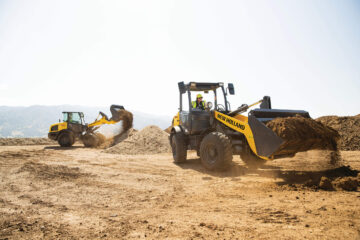A little more than five years ago, the U.S. Department of Labor’s Occupational Safety and Health Administration (OSHA) published a final rule that clarified certification requirements for crane operators, and maintains the employer’s duty to ensure that crane operators can safely operate the equipment.
The rule went into effect on December 9, 2018.
Under the rule, employers are required to train operators as needed to perform assigned crane activities, evaluate them and document successful completion of the evaluations. Employers who evaluated operators prior to December 9, 2018 did not have to conduct those evaluations again, but only have to document when those evaluations were completed.
The rule also requires crane operators to be certified or licensed, and receive ongoing training as necessary to operate new equipment. Operators can be certified based on the crane’s type and capacity, or type only, which ensures that more accredited testing organizations are eligible to meet OSHA’s certification program requirements. The 2018 rule revised a 2010 requirement that crane operator certification must specify the rated lifting capacity of cranes for which the operator is certified. Compliant certifications that were already issued by type and capacity are still acceptable under this final rule.
One of the organizations that oversees training and certification programs are important activities of the National Commission for the Certification of Crane Operators, commonly referred to by the acronym NCCCO, is a non-profit organization, established in January 1995.
NCCCO certifications are accredited by the American National Standards Institute (ANSI) for fairness, validity, and reliability in testing, and the covered written and practical testing, including Rigger Level I and II programs. OSHA has recognized NCCCO since 1999.









